News
-
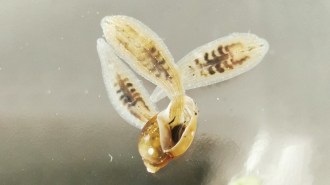 Animals
AnimalsFreshwater leeches’ taste for snails could help control snail-borne diseases
A freshwater leech species will eat snails, raising the possibility that leeches could be used to control snail-borne diseases that infect humans and livestock.
-
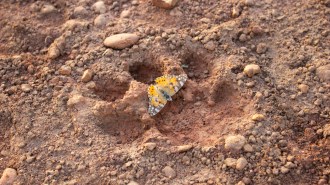 Animals
AnimalsThe last leg of the longest butterfly migration has now been identified
After a long journey across the Sahara, painted lady butterflies from Europe set up camp in central Africa to wait out winter and breed.
-
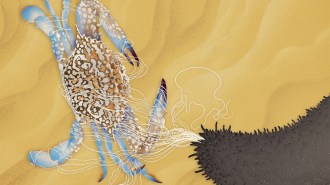 Animals
AnimalsThis sea cucumber shoots sticky tubes out of its butt. Its genes hint at how
A new genetics study is providing a wealth of information about silky, sticky tubes, called the Cuvierian organ, that sea cucumbers use to tangle foes.
-
 Math
MathDense crowds of pedestrians shift into surprisingly orderly lines. Math explains why
New research into collective behavior adds to decades of study on the wisdom of crowds.
-
 Environment
EnvironmentSatellite imagery reveals ‘hidden’ tornado tracks
Twisters that churn over barren landscapes leave scars that are invisible to human eyes but are detectable with infrared light.
-
 Climate
ClimateBaseball’s home run boom is due, in part, to climate change
Higher air temperatures led to an average of 58 more home runs each MLB season from 2010 to 2019, a study shows.
-
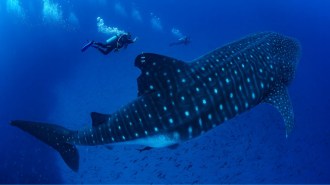 Oceans
Oceans‘Jet packs’ and ultrasounds could reveal secrets of pregnant whale sharks
Only one pregnant whale shark has ever been studied. New underwater techniques using ultrasound and blood tests could change that.
-
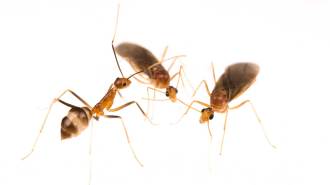 Animals
AnimalsInvasive yellow crazy ants create male ‘chimeras’ to reproduce
Yellow crazy ants are first known species where chimerism is required in males: Each of their cells holds DNA from just one of two genetic lineages.
-
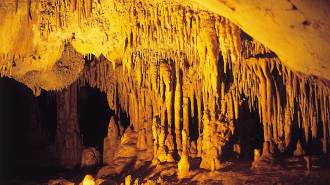 Archaeology
ArchaeologyHair analysis reveals Europe’s oldest physical evidence of drug use
Analyses of human hair found in a Mediterranean cave turned up psychoactive plant substances, revealing use of hallucinogens around 3,000 years ago.
By Bruce Bower -
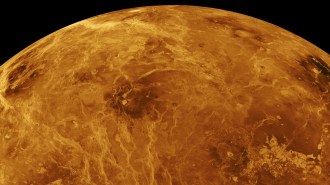 Planetary Science
Planetary ScienceVenus has almost 50 times as many volcanoes as previously thought
Where are there NOT volcanoes on Venus? A new map of the planet unveils a veritable volcanic bonanza.
-
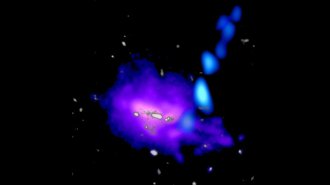 Astronomy
AstronomyA stream of cold gas is unexpectedly feeding the far-off Anthill Galaxy
The finding suggests that early galaxies might have gained more of their bulk from streams of cold gas instead of in violent galaxy collisions.
-
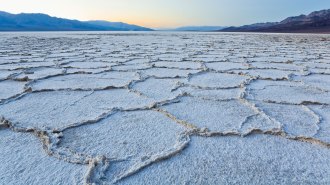 Math
MathHere’s why the geometric patterns in salt flats worldwide look so similar
New research suggests the shared geometry of salt flats from Death Valley to Iran comes from fluid flows underground.